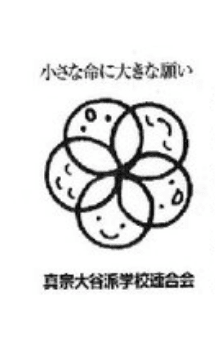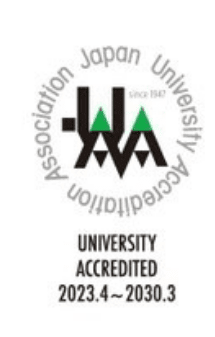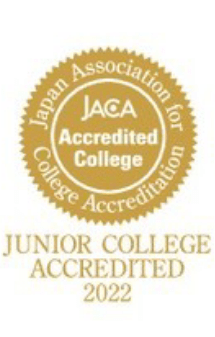Kyoto Koka
Women’s University


- A future of well-being
- For more than 80 years, Kyoto Koka has been educating women based on the Buddhist teachings. At the core of this is our school motto, “compassion.” Compassion is the state of mind where you care about others, consider others, and support each other. This is an important concept that also leads to a sustainable society. We stand by this philosophy and aim to achieve a future of well-being where everyone can live healthily, and meet society’s needs by caring about each and every student and the community.
| Established | 1964 |
|---|---|
| President | Shigeru Takami |
| Available places |
|
* Scheduled to open in April 2024
Faculty of Nursing,
Social Work and Rehabilitation Science** Scheduled to open in April 2024
Department of Social Work and Rehabilitation Science (Occupational Therapy Major)※
※ Scheduled to open in April 2024
The program trains occupational therapists—professionals who provide treatment to people who are unable to perform work due to illness, injury, dementia, or various other reasons. Occupational therapists provide treatment not only for physical health, but also for mental health. We develop and train our students to care about each and every patient.
- Qualifications Available Upon Graduation
- Occupational Therapist (eligible for Japan's national examination)

Department of Social Work and Rehabilitation Science (Speech-language Hearing Therapy Major)
The program trains speech therapists—rehabilitation professionals who assist people with speech, hearing, and swallowing disorders. Through clinical practice and by learning from professionals who are active in the field, our students will be able to support medical care and collaborate with various professionals.
- Qualifications Available Upon Graduation
- Speech Therapist (eligible for Japan’s national examination)

Department of Social Work and Rehabilitation Science (Social Welfare Major)
The program trains social workers and mental health workers to play an active role in a wide range of fields through learning about working with rehabilitation and medical professionals and about supporting women, children, and people with difficulties in their daily lives, such as in school and at work.
- Qualifications Available Upon Graduation
- Certified Social Worker (eligible for Japan’s national examination)
- Mental Health Social Worker (eligible for Japan’s national examination) *1
- Social Welfare Officer (qualification for appointment)
- Child Welfare Officer (qualification for appointment)*2
- Family Counselor (qualification for appointment)
- Child Guidance Counselor (qualification for appointment)
- Mobility Support Workers for the Intellectually and Mentally Disabled (Guide Helper)
- Dementia Supporter
*1 The number of places available is fixed.
*2 Students must meet certain requirements, such as obtaining qualification as a certified social worker or engaging in child welfare work as a social welfare officer for at least two years.

Department of Nursing
Characterized by its nursing education based on the Buddhist teachings, which value the school motto “compassion.” In addition to becoming licensed nurses, students are also eligible to become certified public health nurses or licensed school nurses.
- Qualifications Available Upon Graduation
- Nurse (eligible for Japan’s national examination)
- Public Health Nurse (eligible for Japan’s national examination)*
- School Nurse (Class 1 License)
* The number of places available is fixed.
and more

Faculty of Health Science
Department of Health and Nutrition (National Registered Dietitian Training Course)
The program contributes to health through food and consists of two courses: the Medical Nutrition Course, which trains registered dietitians involved in nutritional support at medical and welfare facilities, and the Food Creation Course, which trains registered dietitians who are active in food manufacturing, food processing, and the restaurant and meal service industries.
- Qualifications Available Upon Graduation
- Registered Dietitian (eligible for Japan’s national examination)
- Dietitian
- Nutrition Teacher (Class 1 License)
- Food Sanitation Supervisor (qualification for appointment)
- Food Sanitation Inspector (qualification for appointment)
- Advanced Food Specialist (eligible for examination)
and more

Department of Health and Nutrition (Health, Sports and Nutrition Course)
The program develops human resources to manage health from both the sports and nutritional education perspectives. In the Healthy Sports Course, students learn how to eat and nourish the body with appropriate nutrients according to health conditions and lifestyles. In the Food Management Course, students learn how to develop menus, covering manufacturing, sales, public relations activities, and other areas that go beyond the conventional scope of a nutritionist.
- Qualifications Available Upon Graduation
- Dietitian
- Junior High and High School Teacher (Class 1 License): Health Education and Physical Education
- Health Fitness Programmer (eligible for examination)
- Health Fitness Instructor (eligible for examination)
- Certified Sports Instructor (eligible for examination) *
- (Certified) Beginner Para-sports Instructor
- Advanced Food Specialist (eligible for examination)
and more
* When taking the examination, students will be exempted from Common Subjects II Course (course exempted from training and examinations) from the sports instructor training seminar, which is approved by the Japan Sport Association.

Department of Psychology
Students will learn about the science of psychology in three courses (Clinical and Psychological Counseling, Child and Developmental Support, and Social and Criminal Psychology) and apply the practical skills acquired in medicine, welfare, education, justice, industry, and other fields.
- Qualifications Available Upon Graduation
- Certified Public Psychologist (eligible for Japan’s national examination) *1
- Clinical Psychologist (eligible for examination after completing graduate level course) *2
- Nursery Teacher Qualification *3
- Childcare Psychologist *4
- Certified Psychologist
- Social Researcher
- Certified Business Information Administrator *5
- Psychological Counselor *6
- Child Guidance Counselor (qualification for appointment)
- Child Psychologist (qualification for appointment)
and more
*1 After graduating from university, students must gain a certain amount of work experience or complete graduate school to qualify for the examination.
*2 Students must complete graduate school to qualify for the examination.
*3 The number of places available is fixed. Cannot be taken with the qualification for the certified public psychologist examination.
*4 Requires the nursery teacher qualification.
*5 Can be obtained by taking the courses in other departments.
*6 Training (3 days) is required after graduation.

Faculty of Career Development
Department of Career Development
By selecting any specialized courses from three areas (Contemporary Sociology and Regional Public Affairs; Life Science, Tourism, and Design; or Business Administration and Data Science), students develop the ability to contribute to society and aim for career-track positions in various industries and in public service.
- Qualifications Available Upon Graduation
- IT Passport Examination (Japan’s national examination)
- Financial Planning Proficiency Examination (Level 2 and 3) (Japan’s national examination)
- JCCI Bookkeeping Certification Test (3rd grade)
- Social Researcher
- Registered Sales Clerk (Japan’s national examination)
- Comprehensive Certified Travel Supervisor Examination (Japan’s national exam)
- Medical Clerical Skills Examination (Medical Clerk®)
- Real Estate Notary (Japan’s national examination)
and more

Faculty of Child Education
Department of Child Education (Early Childhood Education Program)
Three qualifications/licenses can be obtained at the same time: Nursery Teacher Qualification, Kindergarten Teacher (Class 1 License), and Elementary School Teacher (Class 1 License). Students acquire practical skills through extensive field experience and develop rich sensibilities at the Koka Kindergarten and Elementary School, which are part of our facility.
- Qualifications Available Upon Graduation
- Kindergarten Teacher (Class 1 License)
- Nursery Teacher Qualification
- Elementary School Teacher (Class 1 License)
- Social Welfare Officer (qualification for appointment)
- Mobility Support Workers for the Intellectually and Mentally Disabled (Guide Helper)
- Elementary School English Teacher Certification (J-SHINE accredited)
- Certified Picture Book Specialist
- Test of English for Early Childhood Educators *
* We provide support to pass the proficiency test.

Department of Child Education (School Education Program)
In addition to Elementary School Teacher (Class 1 License), students will also sit for the examination to obtain Kindergarten Teacher (Class 1 License). The program develops teaching skills for future education, including foreign language subjects and ICT utilization.
- Qualifications Available Upon Graduation
- Elementary School Teacher (Class 1 License)
- Kindergarten Teacher (Class 1 License)
- Nursery Teacher Qualification *1
- Social Welfare Officer (qualification for appointment)
- Mobility Support Workers for the Intellectually and Mentally Disabled (Guide Helper)
- Elementary School English Teacher Certification (J-SHINE accredited)
- Certified Picture Book Specialist
- Test of English for Early Childhood Educators *2
*1 Students are eligible if they clear certain criteria.
*2 We provide support to pass the proficiency test.

School of Human Health
School of Human Health
Students will study subjects from four faculties (Faculty of Nursing, Social Work and Rehabilitation Science; Faculty of Health Science; Faculty of Career Development; and Faculty of Child Education), and will be trained to play an active role in healthcare, a field that sees growing need in society.
- Qualifications Available Upon Graduation
- Certified Manager of Public Policy (Basic)
- Glocal Project Manager (GPM)
- Social Welfare Officer (qualification for appointment)
- Certified Business Information Administrator
- Social Researcher
- Medical Clerical Skills Examination (Medical Clerk®)
- Medical Office Assistant Certification Examination (Doctor’s Clerk®)
and more

Post Graduate Course
Post Graduate Course in Midwifery
The program trains midwives to accompany women throughout their lives from the perspective of Buddhist nursing. Through a variety of on-site practical training, students acquire practical skills and develop midwifery diagnostics abilities to respond to medical emergencies.
※This is a one-year program for students who have (or expect to obtain) a nursing license after graduating from university, with the aim of obtaining a midwifery license or other certifications.
- Qualifications Available Upon Graduation
- Midwife (eligible for Japan’s national examination)
- Reproductive Health Supporter Qualification
- Neonatal Resuscitation (Course A) Qualification

Overview
History
The school was established by Satoko Otani (the younger sister of Emperor Showa’s wife, Empress Kojun), who was the urakata (spouse of the chief priest) of Higashi Honganji Temple, with the wish to “provide education for women in Kyoto based on Buddhist teachings, especially the teachings of Jodo Shinshu as articulated by Shinran.” The founder’s wish was incorporated into the school’s name “Koka” and the school motto “compassion,” and in the 80 over years since Koka Women’s High School opened in 1940, the school has developed into a comprehensive school spanning kindergarten, elementary school, junior high school, high school, college, university, and graduate school, thanks to the efforts of many predecessors and the generous support of many related individuals.
Today, approximately 3,000 students are enrolled in the school, and approximately 72,000 students have graduated from the school and are active in various fields in society.

Access
Wide Area Map

Access Map

The nearest station, Nishikyogoku Station on the Hankyu Kyoto Line, is about a 7-minute walk through a quiet residential area.


